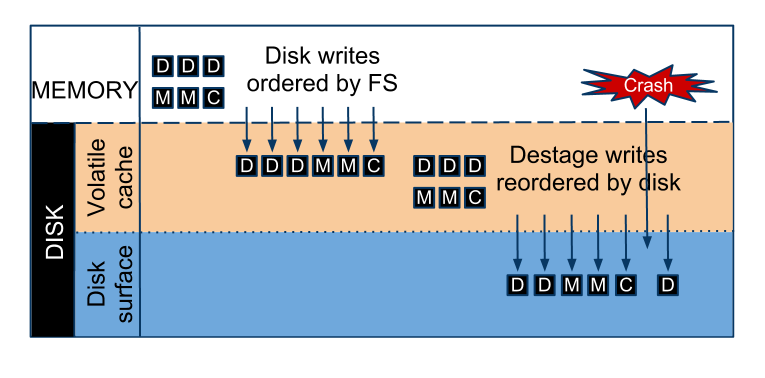Coerced Cache EvictionModern file system carefully order disk writes to maintain consistency. However, on disks that have write caches, the write order is not preserved when the disk destages the writes from the cache to the non-volatile surface. Writes A, B, C may be later destaged in order C, A, B. A crash in the middle of destaging results in the loss of file-system consistency. 
F_FULLFSYNC: Does the same thing as fsync(2) then asks the drive to flush all buffered data to the permanent storage device (arg is ignored). This is currently implemented on HFS, MS-DOS (FAT), and Universal Disk Format (UDF) file systems. The operation may take quite a while to complete. Certain FireWire drives have also been known to ignore the request to flush their buffered data.
This increases the performance of the drive, at the risk of losing file-system consistency in the event of a crash. Coerced Cache Eviction is a technique that allows file systems to maintain consistency while running on such misbehaving disks. The technique involves characterizing the disk through microbenchmarks, and writing extra data (from a flush zone) at each ordering point to hopefully force the data that we care about from the disk cache onto the non-volatile surface of the disk.

Related PublicationsCoerced Cache Eviction: Dealing with Misbehaving Disks through Discreet-Mode JournalingAbhishek Rajimwale, Vijay Chidambaram, Deepak Ramamurthi, Andrea C. Arpaci-Dusseau, Remzi H. Arpaci-Dusseau DSN 2011 Abstract PDF BibTex Talk PPT Talk Slides
|